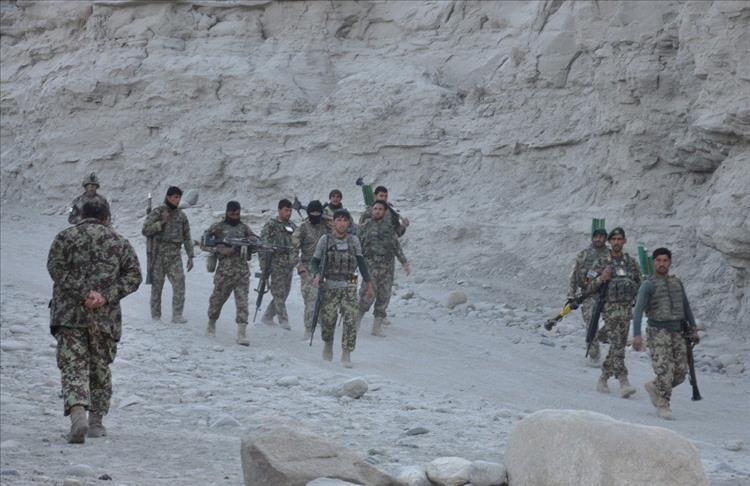
By Shadi Khan Saif
KABUL, Afghanistan
An Afghan Taliban delegation went to Beijing in November. It has been rumoured for months, with information trickling out from the Afghan government, Pakistan and China but it was only on Tuesday that the meeting was finally admitted by the Taliban.
"We are in contact with the global community, specifically neighboring countries," said Taliban spokesman Zabihullah Mujahid in a statement that appeared to confirm a new a space for Chinese influence in Afghanistan. "We are in favor of peace talks and our delegations have travelled to other countries also to ensure peace in the country."
According to Pakistani media reports, quoting government sources, Qari Din Muhammad, a Qatar-based Taliban representative, headed the delegation to Beijing in November, alongside some Pakistani officials.
The visit came only days after Afghan President Ashraf Ghani went to Beijing himself, on his maiden trip after taking office in September, to request China's assistance in security affairs, according to his close aid, Siddiq Patman.
"Peace and stability is ultimately connected to their (China’s) stability as well," Patman told The Anadolu Agency.
"Now as China has stepped in, we will be witness to sufficient measures for peace and stability, which is not in the interest of Afghanistan only, but of China and the entire region," Ghani was quoted as saying in Kabul last week.
The Chinese ambassador to Afghanistan, Xu Feihong, hinted at a similar role for China during a meeting with Chief Executive Abdullah Abdullah.
Ghani's government has sought to recalibrate Afghan foreign policy, replacing over-reliance on the West with stronger ties with immediate neighbours.
His pick for the deputy of the Ministry of Foreign Affairs, Hekmat Karzai, is said to be the brains behind engaging China more actively.
Karzai, the founder of Afghanistan's Centre for Conflict and Peace Studies, is eyeing a shift away from a foreign policy driven by geo-strategic interests and towards economic gain.
China's geo-strategic policy has involved a traditional alliance with Pakistan, something which means that its contacts with the Taliban are not new, according Afghanistan’s former spymaster General Abdul Wahid Taqat.
"China seems to be reviving and harnessing them in the wake of NATO’s withdrawal from Afghanistan," he told AA.
The former communist-era intelligence chief claimed that Beijing had even secretly supplied small arms to the Taliban when it ran Afghanistan's government from 1998 to 2001, because of the militant group's cordial relations with China's closest regional ally, Pakistan.
General Taqat stressed that the new Afghan government has a very delicate task on its hands to maintain a balance in ties with China without damaging cordial relations with China's Asian rival India or the West.
It was rumoured that the Taliban might open a representative office in Beijing, something they had attempted to do in Qatar in 2013 but failed after then Afghan President Hamid Karzai became enraged at the hoisting of a white Taliban regime flag; which he saw as a sign of a regime-in-exile.
The Taliban still claim to be Afghanistan's rulers, running a parallel system known as a shadow government, with governors, security chiefs and justices appointed in areas where they are strong. They call the Kabul government a puppet regime put in place by the "foreign invaders."
Anadolu Agency website contains only a portion of the news stories offered to subscribers in the AA News Broadcasting System (HAS), and in summarized form. Please contact us for subscription options.







